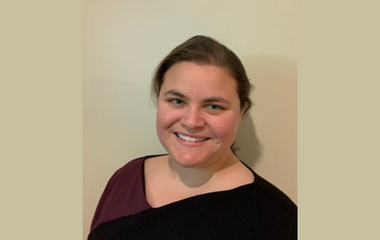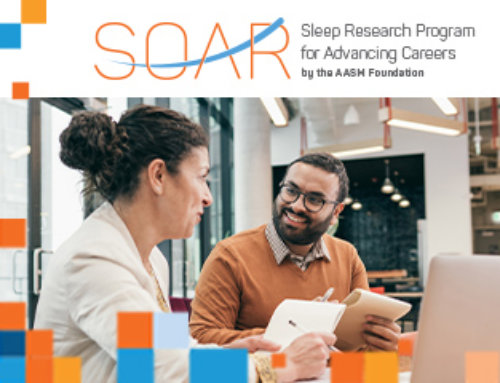As leaders in the sleep medicine field, the AASM Foundation and Hypersomnia Foundation share a common goal: promote the research and discovery of new ways to improve the lives of those with sleep disorders. Because of this shared passion, these two foundations have come together to support novel hypersomnolence research by providing research funding support as part of the Strategic Research Grant program.
“By working together, the AASM Foundation and the Hypersomnia Foundation broadened their network of connections across the global research community to increase interest in hypersomnia research,” said Hypersomnia Foundation Board Chair, David Burley, “For the first time, patients were included in the process of evaluating the research proposals, ensuring that precious patient donations are allocated to projects of greatest interest to our community. With the expertise of the AASM Foundation’s research management process and the passion of patients, we hope to increase the speed of breakthrough research in hypersomnias,” said Burley.
The Strategic Research Grant program supports high-impact, investigator-initiated research projects aimed at providing optimal, cost-effective diagnoses and care for people with sleep disorders. The project chosen to be co-funded by the AASM Foundation and the Hypersomnia Foundation was submitted for a request for applications (RFA) focused on topics that align with both the strategic goals of the AASM and with the research priorities of the Hypersomnia Foundation.
“The AASM Foundation is excited about our collaboration with the Hypersomnia Foundation, which represents our inaugural grant funding collaboration with a patient advocacy organization. This grant funding collaboration is a meaningful step towards our vision for all individuals and communities to achieve healthier lives through better sleep,” said AASM Foundation President, Anita Shelgikar, MD, MHPE. Together, the AASM Foundation and Hypersomnia Foundation can positively impact more lives by funding high-impact research, especially for those diagnosed with idiopathic hypersomnia (IH).
Idiopathic Hypersomnia: Why Is It Important To Research?
IH is a chronic neurological sleep disorder that causes extreme daytime sleepiness, despite getting full or extended amounts of sleep in the night, and severely impacts quality of life. Often, those with IH do not receive a correct diagnosis for extended periods of time, leaving them increasingly vulnerable to poor sleep and overall health.
Though it has been determined that IH is a disorder of the brain and central nervous system, the underlying cause is still unknown. This uncertainty signals a need for further research to better treat patients and uncover the root cause of IH.
Congratulations To Dr. Margaret Blattner
 The AASM Foundation and the Hypersomnia Foundation would like to congratulate Margaret Blattner, MD, PhD, the recipient of the 2022 Strategic Research Grant: AASM Strategic Plan Goals. Blattner will conduct her research, A Novel Protocol for Understanding and Diagnosing Idiopathic Hypersomnia, at Beth Israel Deaconess Medical Center, Inc.
The AASM Foundation and the Hypersomnia Foundation would like to congratulate Margaret Blattner, MD, PhD, the recipient of the 2022 Strategic Research Grant: AASM Strategic Plan Goals. Blattner will conduct her research, A Novel Protocol for Understanding and Diagnosing Idiopathic Hypersomnia, at Beth Israel Deaconess Medical Center, Inc.
“Clinicians and patients have long been aware of the shortcomings of current sleep study protocols for diagnosing hypersomnias” said Burley, “Dr. Blattner’s research on extended sleep study testing in the home environment will test out protocols for capturing a more accurate picture of a patient’s sleep experience over longer periods of time. Someday, this research may lead to increased accuracy in diagnosis and a greater understanding of the variation of sleep patterns across the hypersomnia spectrum,” said Burley.
Blattner’s research recognizes that the current and most common methodology of diagnosing IH, a polysomnogram (PSG) and multiple sleep latency test (MSLT), may have poor sensitivity, specificity, and reliability. Though increasing the time of PSGs (24-32 hours) would increase the accuracy, it would be difficult to implement a longer test in most sleep centers. To Blattner, this means that better diagnostic tools and more focused biomarkers are needed to improve the accuracy and utility of IH diagnoses. Using this theory, Blattner will test the sensitivity and specificity of using ambulatory sleep EEG technology as a novel protocol for diagnosing IH. Blattner believes that her research will help address the need to identify an accurate and reliable diagnostic tool for IH.






